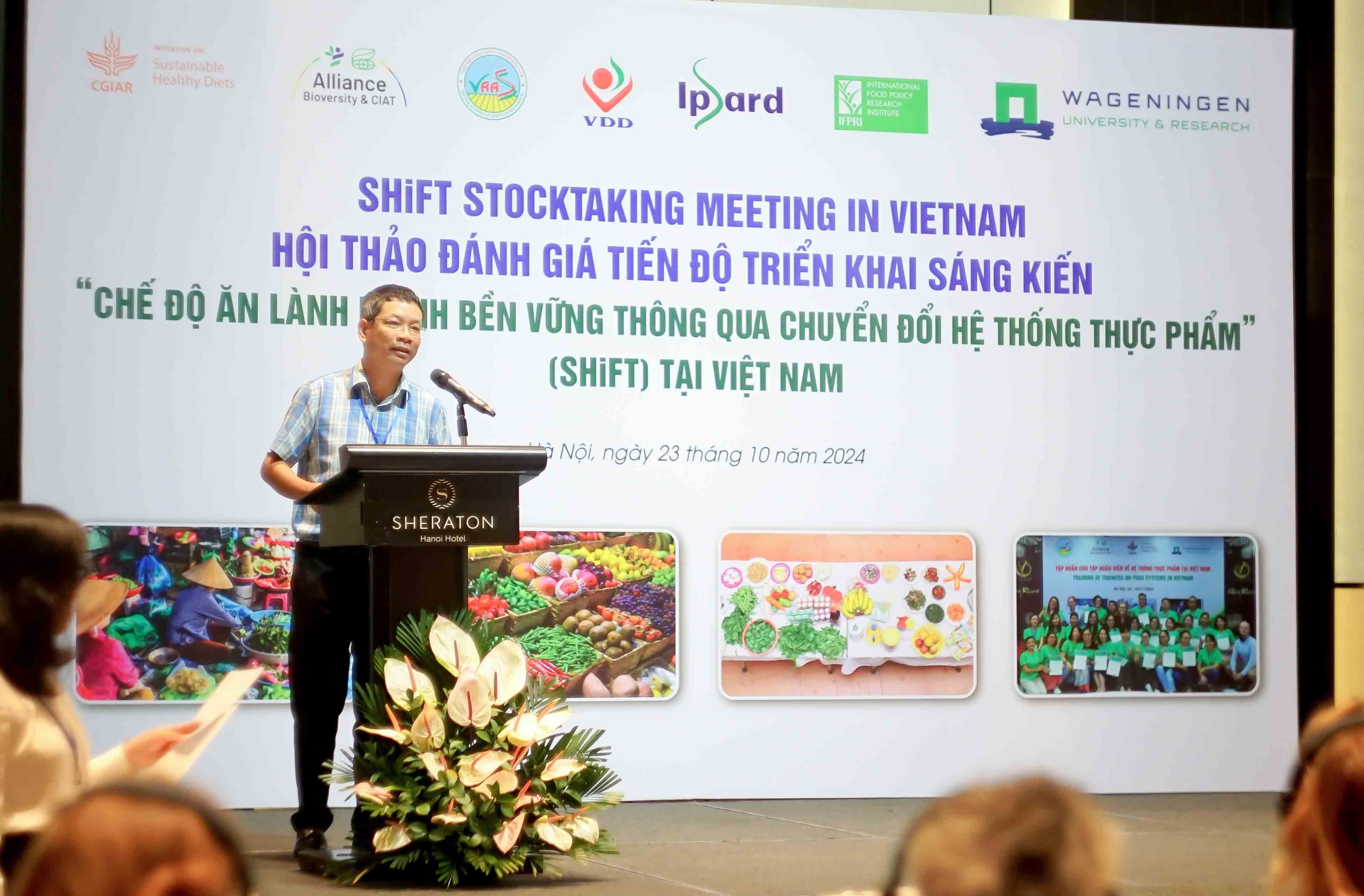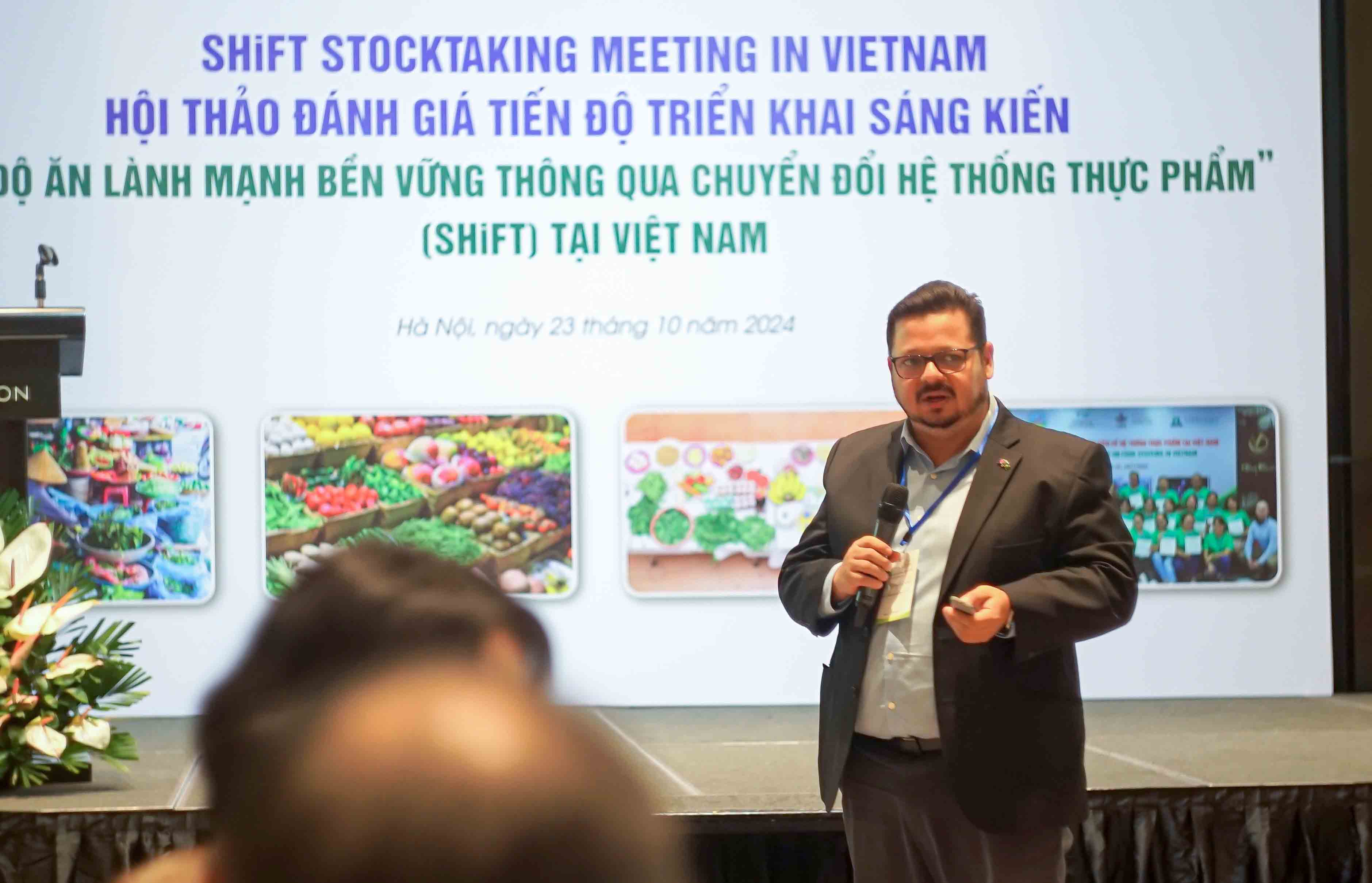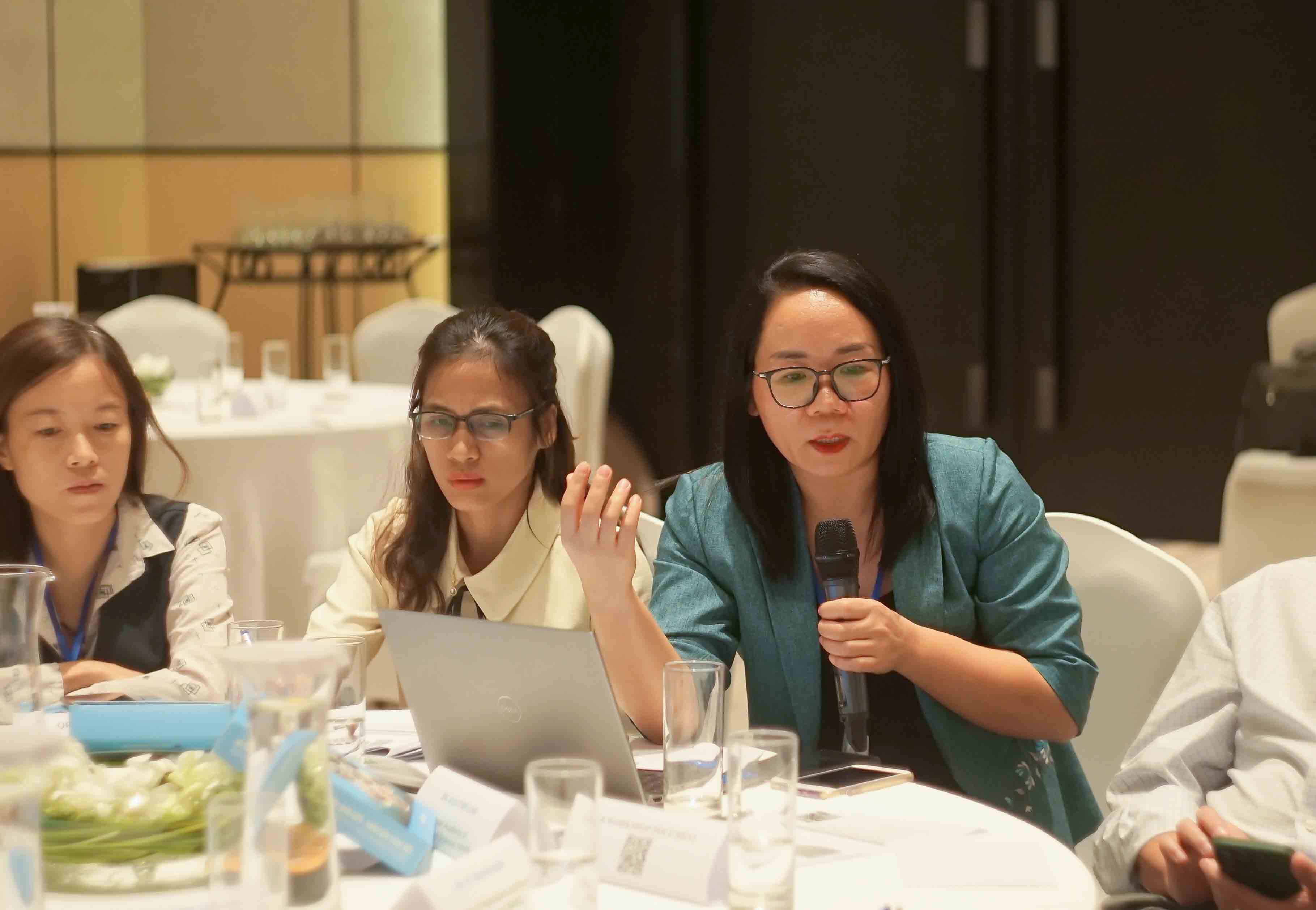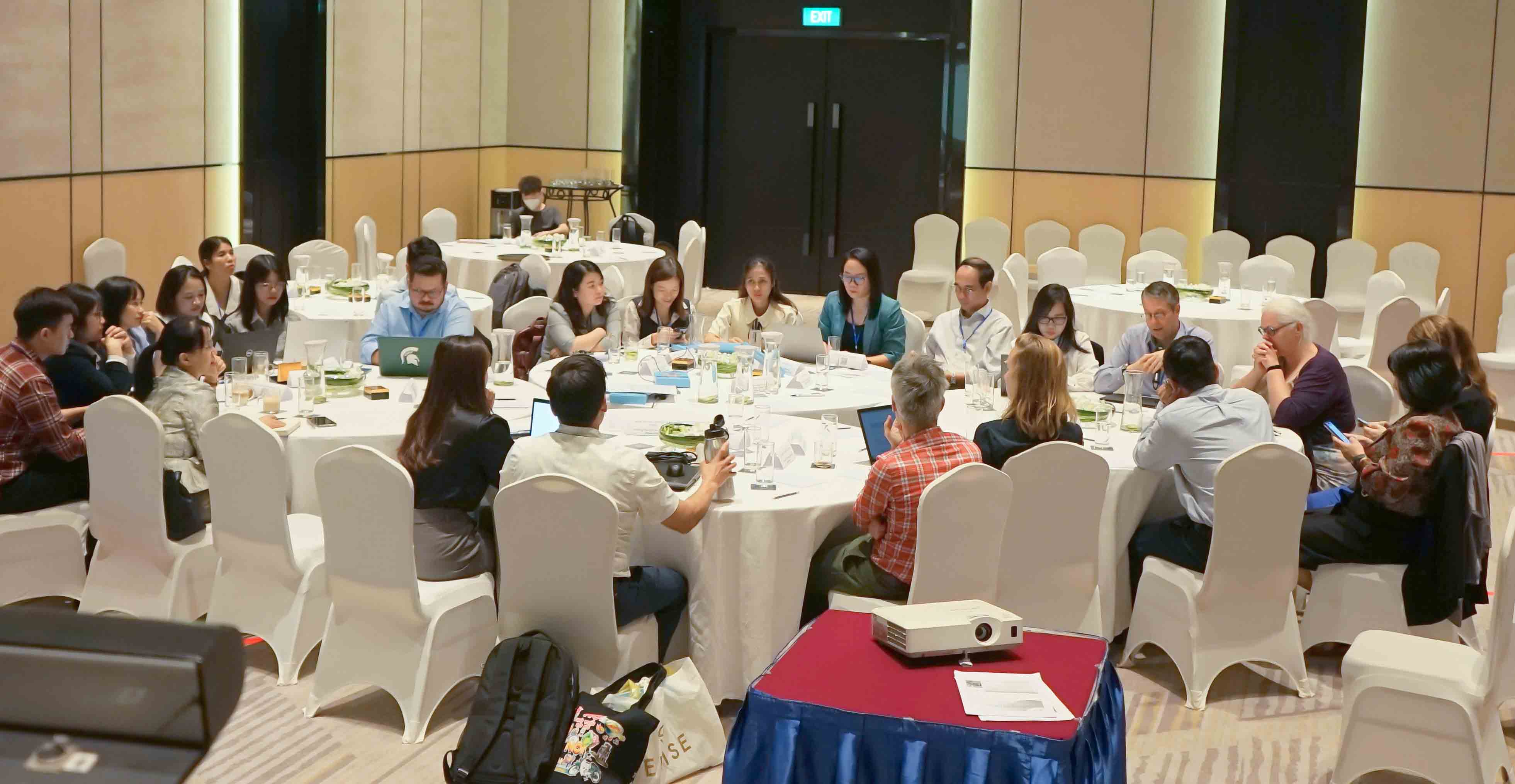This event attracted the participation of more than 60 delegates and SHiFT partner members from Wageningen University and Research (WUR); the International Food Policy Research Institute (IFPRI); Bioversity & CIAT Alliance; the National Institute of Nutrition (NIN); the Vietnam Academy of Agricultural Sciences (VAAS); the Institute of Policy and Strategy for Agriculture and Rural Development (IPSARD); the Department of International Cooperation - Ministry of Agriculture and Rural Development; representatives from organizations, research agencies, and universities (HUST, CTU, CTUMP).
Image: Workshop event









Source: Bioversity & CIAT Alliance
The SHiFT initiative, "Sustainable Healthy Diets through Food Systems Transformation," was developed with the primary goal of promoting and ensuring sustainable healthy diets for everyone through transforming the food system. This initiative focuses on encouraging sustainable food consumption and enhancing the supply of nutritious, safe, affordable, and sustainably produced food while improving livelihoods, gender equality, and active participation of all stakeholders in the food system. The SHiFT initiative is being implemented over a 3-year period, from 2022 to 2024, with 5 components: Consumers and Food Environments; Micro, Small, and Medium Enterprises and Informal Sector Actors; Governance and Inclusive Food Systems; Trade-off Scenario Analysis; and Promoting Food System Transformation.
The initiative's research aims to promote potential solutions applied by stakeholders to increase the demand for sustainable healthy diets; improve the capacity of micro, small, and medium enterprises and the informal sector to provide sustainably nutritious food and create inclusive income opportunities; address issues related to gender equality, youth participation, and social inclusion in the food system. Stakeholders are strengthened in their knowledge and capacity to participate in governance and issues related to food system transformation towards sustainable healthy diets, reducing trade-offs between food system outputs concerning inclusion, sustainability, climate change, food safety, and diet quality; and implementing consistent, multi-sectoral actions to accelerate the transformation of the food system towards sustainable healthy diets.